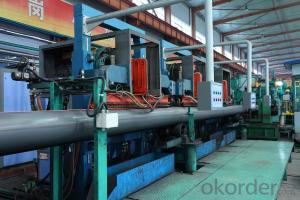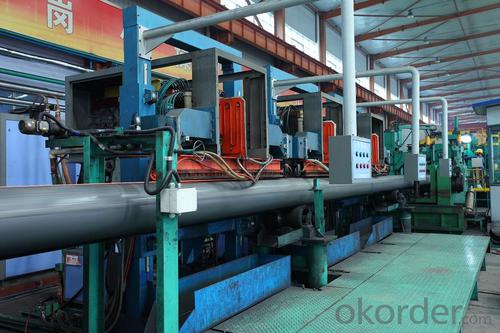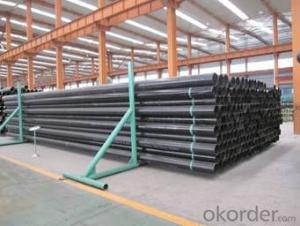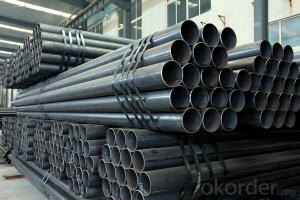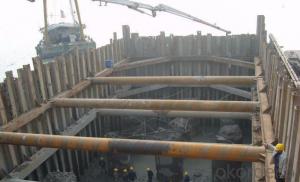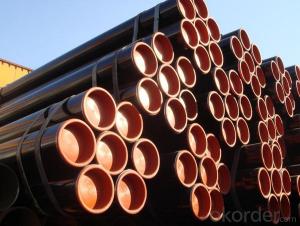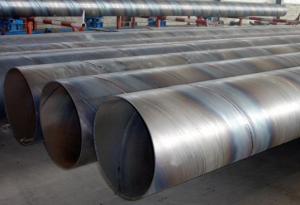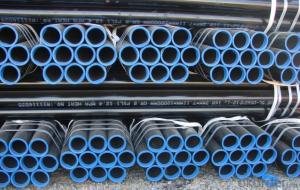Factory of ERW steel line pipe
- Loading Port:
- China Main Port
- Payment Terms:
- TT OR LC
- Min Order Qty:
- -
- Supply Capability:
- -
OKorder Service Pledge
Quality Product, Order Online Tracking, Timely Delivery
OKorder Financial Service
Credit Rating, Credit Services, Credit Purchasing
You Might Also Like
Factory of ERW steel line pipe
| Standard | API SPEC 5L, GB/T 9711,ISO3183 API 5CT GB/T 13793,JIS G 3444, JIS G3445 EN10219-2 |
| Material Grade | GR.B X42 X46 X52 X56 X60 X65 X70 X80 PLS1 PLS2 S235JRH S275JOH S275J2H S355JOH S355J2H S355K2H J55 K55 N80 L80-1 C90 C95 T95 P110 |
| Outer Diameter | 114.3mm-660mm |
| Thickness | 3.2mm-22.2mm |
| Length | 6m 12m 11.8m or as required |
| Delivery | 30-45DAYS |
| Payment | L/C at sight or T/T deposit |
- Q: How are steel pipes used in the manufacturing of automobiles?
- Due to their strength, durability, and versatility, steel pipes find widespread use in the manufacturing of automobiles. Throughout the automobile manufacturing process, various applications make use of steel pipes. One primary application of steel pipes in automobiles lies in constructing the vehicle's chassis and body. Structural components, such as steel pipes, provide the necessary strength and rigidity. With the ability to be bent, shaped, and welded, steel pipes prove to be an ideal choice for automotive purposes. Additionally, steel pipes play a crucial role in the exhaust system of automobiles. Responsible for guiding and redirecting exhaust gases away from the engine, steel pipes form the exhaust manifold. They also contribute to the exhaust pipes and mufflers. Steel's high temperature and corrosion resistance make it suitable for enduring the harsh conditions of the exhaust system. Moreover, steel pipes serve in the cooling system of automobiles. They facilitate the transportation of coolant from the engine to the radiator and back, effectively regulating the engine's temperature. Due to their ability to handle high pressure and temperature, as well as their resistance to corrosion and chemical damage, steel pipes remain the preferred choice for this application. Furthermore, steel pipes find usage in the fuel system of automobiles. They ensure a consistent and reliable supply of fuel by transporting it from the tank to the engine. Steel pipes are selected for this purpose because of their resistance to corrosion and their ability to withstand the high pressure and temperature associated with fuel transportation. In conclusion, steel pipes are indispensable in automobile manufacturing. They contribute significantly to the construction of the chassis and body, the exhaust system, the cooling system, and the fuel system. Thanks to their strength, durability, and versatility, steel pipes are the preferred choice for various automotive applications.
- Q: How do you calculate the bending moment of a steel pipe?
- To determine the bending moment of a steel pipe, one must take into account both the applied load and the structural characteristics of the pipe. The bending moment quantifies the internal forces within the pipe caused by the applied load. To calculate the bending moment, one can use the following equation: Bending Moment = Load x Distance In this equation, the load represents the external force acting on the pipe, and the distance refers to the separation between the point of load application and the point where the bending moment is being evaluated. For an accurate bending moment calculation, it is necessary to consider the properties of the steel pipe. These properties encompass the pipe's cross-sectional area, second moment of area (also known as the moment of inertia), and the modulus of elasticity. The second moment of area demonstrates the pipe's resistance to bending and can be computed based on the dimensions of the pipe's cross-section. The modulus of elasticity signifies the pipe's stiffness and can be obtained from material properties data. Once the load, distance, cross-sectional area, moment of inertia, and modulus of elasticity are determined, they can be inputted into the bending moment equation to ascertain the bending moment for the steel pipe. It is important to recognize that the calculation of bending moment assumes linear elastic behavior, which implies that the pipe does not surpass its elastic limit nor undergo plastic deformation. If the pipe is exposed to loads surpassing its capacity, the bending moment calculation may not accurately depict the actual behavior of the pipe. In such instances, it is recommended to consult a structural engineer or employ more sophisticated analysis methods to precisely evaluate the bending moment.
- Q: What is the thermal expansion coefficient of steel pipes?
- The thermal expansion coefficient of steel pipes varies depending on the specific type of steel used, as well as the temperature range in which the expansion is being measured. However, on average, the thermal expansion coefficient of steel pipes ranges from 10-14 x 10^-6 per degree Celsius (10-14 μm/m°C). This means that for every degree Celsius increase in temperature, the length of a steel pipe will expand by approximately 10-14 μm per meter of length. It is important to note that this value is an average and can vary slightly depending on the specific composition and treatment of the steel used in the pipe.
- Q: What are the different methods of cleaning steel pipes?
- There are several methods of cleaning steel pipes, including mechanical cleaning, chemical cleaning, and high-pressure water jetting. Mechanical cleaning involves using wire brushes, scrapers, or sandpaper to physically remove debris and rust from the pipe's surface. Chemical cleaning involves using solvents or acids to dissolve contaminants and rust, followed by flushing the pipe with water. High-pressure water jetting uses a stream of water at high pressure to remove dirt, rust, and other deposits from the pipe's interior and exterior surfaces.
- Q: Can steel pipes be used for the construction of transmission towers?
- Yes, steel pipes can be used for the construction of transmission towers. Steel pipes are commonly used in the construction industry due to their strength, durability, and ability to withstand various weather conditions. They provide a reliable and cost-effective solution for supporting the weight and load of transmission towers, making them suitable for this purpose.
- Q: Can steel pipes be used for hydraulic systems?
- Yes, steel pipes can be used for hydraulic systems. Steel pipes are commonly used in hydraulic systems due to their high strength, durability, and ability to handle high pressure. They provide excellent resistance to corrosion and can effectively transport hydraulic fluids, making them a suitable choice for various hydraulic applications.
- Q: What's the difference between steel pipe and pipe fittings?
- Pipe classification: steel pipe seamless steel pipe and welded steel pipe (tube) two categories. It can be divided into round tube and special-shaped tube according to the sectional shape. The round steel tube is widely used, but there are some special-shaped steel tubes such as square, rectangle, semicircle, hexagon, equilateral triangle and octagon.
- Q: How are steel pipes used in heating systems?
- Steel pipes are commonly used in heating systems to transport hot water or steam from the boiler to various heating devices, such as radiators or baseboard heaters. The steel pipes are durable and can withstand high temperatures and pressure, ensuring efficient and safe distribution of heat throughout the building.
- Q: Steel pipe is particularly long, how to clean the inner wall of the pipe so that it can be thoroughly cleaned
- If the pipe is relatively long, you have water, you can buy ultrasonic vibration plate into the water for ultrasonic cleaning, if not too long with an ultrasonic vibration rod, inserted into the pipe cleaning, and then rinse with water by ultrasonic stripping of dirt, give you recommend a factory in Jining Hengda
- Q: What is the difference between steel pipes and fiberglass-reinforced pipes?
- Steel pipes are made from a durable and strong material known as steel, which provides high strength and resistance to corrosion. On the other hand, fiberglass-reinforced pipes are made from a combination of fiberglass and resin, offering a lightweight and corrosion-resistant alternative. While steel pipes are commonly used for heavy-duty applications such as oil and gas pipelines, fiberglass-reinforced pipes are often preferred for applications that require resistance to chemicals and high temperatures, like in the chemical industry. Additionally, fiberglass-reinforced pipes have the advantage of being non-conductive, making them suitable for certain electrical applications.
Send your message to us
Factory of ERW steel line pipe
- Loading Port:
- China Main Port
- Payment Terms:
- TT OR LC
- Min Order Qty:
- -
- Supply Capability:
- -
OKorder Service Pledge
Quality Product, Order Online Tracking, Timely Delivery
OKorder Financial Service
Credit Rating, Credit Services, Credit Purchasing
Similar products
Hot products
Hot Searches
Related keywords
